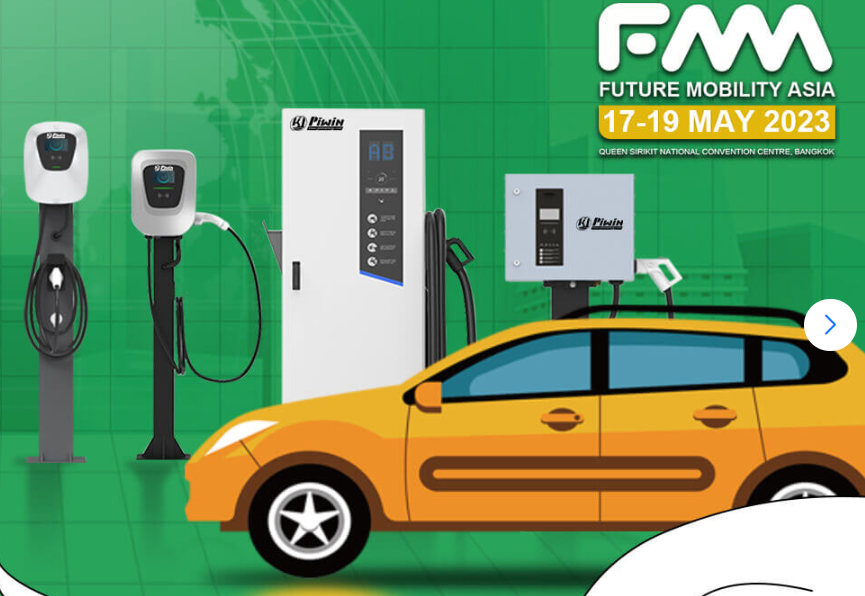
Products
Fast, Reliable, Everywhere

Solutions
Efficient, Innovative EV Charging Solutions.
News
We are committed to the innovation and application of EV charging.
Electric car recharge stations, sometimes called EV charging points, are infrastructural facilities created to offer owners of electric vehicles a practical and accessible way to recharge their vehicles' batteries. These facilities, which operate similarly to conventional petrol stations or diesel filling stations for internal combustion engine cars, are an essential part of the developing ecosystem for electric mobility and allow drivers to refuel their vehicles' energy tanks. There are many different styles and degrees of charging available for electric vehicles. The most popular varieties are DC fast chargers, Level one and Level two chargers. While Level 2 offers a quicker charging rate and is typically found in offices and public parking lots, Level 1 chargers use normal residential outlets and deliver a sluggish charge. The quickest chargers are DC fast chargers, frequently seen beside roads for quick top-ups during lengthy trips.
These charging stations may be located in various places, such as open parking lots, malls, motorways, and metropolitan areas, making it easier than ever for EV owners to refuel their cars. Additionally, many charging stations are connected to internet networks, making it possible for drivers to find, make reservations, and pay for them using RFID cards or mobile applications. This further improves the user experience and encourages using electric vehicles as a sustainable transportation alternative.

The electrification of transport is a viable answer in a society becoming more concerned with lowering our carbon footprint and combatting climate change. With their zero emissions from the exhaust and high energy efficiency, electric cars have emerged as a symbol of the movement towards a more sustainable future. Electric car recharge stations, the hidden heroes of our shift to environmentally friendly transportation, are crucial to this revolution. In this article, we examine the essential role that these recharge stations play in encouraging environmentally friendly transportation and their growing significance.
Convenience is Important
The uncertainty around the infrastructure for charging electric vehicles is one of the key reasons individuals delay making the move. The adoption of EVs has been significantly hampered by the worry about consecutively being out of battery control and being trapped without access to a charging station. Electric car recharge stations address this issue by offering a network of practical and reachable charging outlets. The number of public charging stations is expanding, so EV owners are no longer limited to using their homes as their only power source.
The increasing Network
It is amazing how many electric vehicle charging stations there are. Governments, corporations, and private citizens invest significantly in this infrastructure. Shopping malls, public parking spaces, and residential areas all have charging stations in cities. Strategically positioned charging stations on roads make long-distance driving simple. As it reduces the range anxiety that has turned off would-be purchasers in the past, this network development is essential for the mainstream adoption of electric vehicles.
Unbroken Integration
Their integration with internet networks is a primary factor contributing to electric car recharge stations' effectiveness. Many of these stations are a part of vast charging networks that provide up-to-the-minute details on station availability, compatibility, and cost. Drivers may easily find local charging stations through smartphone applications or in-car navigation systems. Additionally, electronic payment methods are an option for billing sessions, simplifying the user experience. This degree of integration promotes the use of EVs and makes charging easier.
Impact on the Environment
Although electric vehicles as a whole are environmentally benign, so too are the charging stations. Further lowering their carbon impact, these stations may be fueled by renewable energy sources like solar or wind. Additionally, as more renewable energy is used in the electrical grid, the total environmental effect of charging electric cars diminishes. Combining renewable energy sources with electric cars is a crucial step in the fight against climate change.
Economic Possibilities
The increase in electric vehicle charging stations has also spawned economic opportunities. Entrepreneurs and companies have started investing in charging infrastructure, recognizing the potential for profit. For instance, charging station operators could sell power to EV owners or provide subscription services or charging station memberships. This developing sector promotes economic expansion and technological and energy management innovation.
Compared to conventional gas-guzzlers, electric vehicles (EVs) provide environmentally benign options that revolutionize the way we commute. The demand for effective charging infrastructure grows as EV adoption soars. The powerhouses of the EV charging market are 240KW DC Fast Electric car recharge Stations.
In recent years, a considerable transition towards a greener and more sustainable future has been made in the automobile sector. Since they are environmentally benign and there are growing worries about climate change, electric cars (EVs) have become extremely popular. Because of this, the necessity for effective and ubiquitous electric car recharge stations has increased. PIWIN is one of the top electric charging providers because of its reliable infrastructure for charging, consistent performance, user-friendly interface, scalability, and compatibility. When choosing a charging station, compatibility, charging speed, and supplementary services are considered to maximize the overall charging experience. The future of electric charging stations is bright, with further expansion, advancements in quick charging technology, and integration with renewable energy sources on the horizon. Several potential markets have already received our products. We're assisting the globe in becoming carbon neutral earlier than anticipated.
